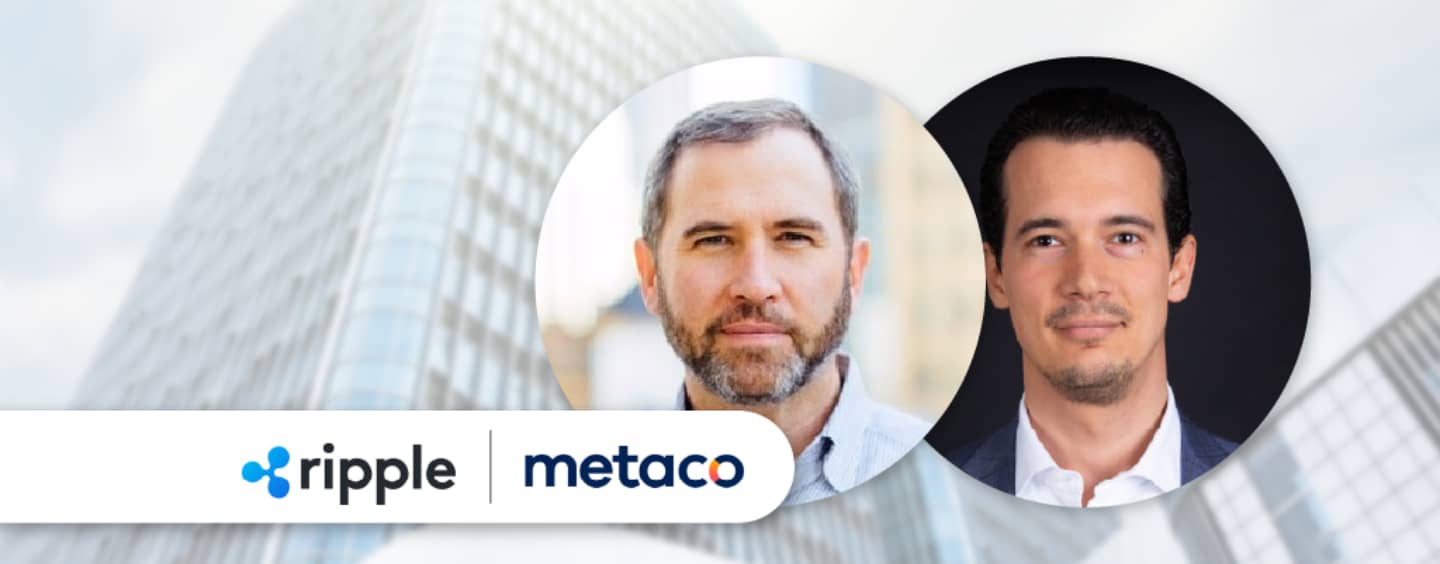Ripple has just announced its first major acquisition: Metaco, a Swiss-based provider of digital asset custody and tokenization technology. The deal was worth a whopping $250 million, half in cash and half in equity. That's right, Ripple is not slowing down!
But who is Metaco and why did Ripple decide to buy them? And what does this mean for Ripple's future and the crypto industry as a whole?
Why Did Ripple Buy Metaco?
Metaco is a company that helps financial institutions store, trade, issue and manage digital assets securely. Founded in 2015 in Switzerland, Metaco has a solid reputation and an impressive roster of clients, including Citi, BNP Paribas, and Societe Generale.
Ripple's CEO Brad Garlinghouse said that the acquisition was a strategic move to expand Ripple's product suite and tap into the growing demand for crypto custody and tokenization solutions. He also said that Metaco's technology would complement Ripple's existing offerings, such as RippleNet, a global network of banks and payment providers that use XRP to facilitate cross-border transactions.
By acquiring Metaco, Ripple hopes to gain a competitive edge in the crypto industry and offer more value to its customers. Garlinghouse said that the deal would enable Ripple to "deliver more innovative solutions across payments and tokenization."
How Does The Acquisition Helps Ripple With Its Regulatory Challenges?
Another reason why Ripple bought Metaco is to increase its presence overseas, especially in Europe, where crypto regulation is more clear and friendly than in the U.S.
As you may know, Ripple is currently facing a lawsuit from the U.S. Securities and Exchange Commission (SEC), which accuses the company and two of its executives of selling unregistered securities.
The SEC claims that XRP is a security that should have been registered with the agency before being issued and sold to investors. Ripple denies this and argues that XRP is a currency that does not need SEC approval.
The lawsuit has been going on since 2020 and has caused a lot of uncertainty and volatility for XRP and its holders.
Some U.S. exchanges have delisted or suspended XRP trading, while some investors have filed class-action lawsuits against Ripple.
By acquiring Metaco, Ripple hopes to diversify its revenue streams and reduce its reliance on the U.S. market. Garlinghouse said the deal would help Ripple "navigate an uncertain regulatory environment" and "future-proof" its business.
How Does The Acquisition Impact The Crypto Market And Ripple's Competitors?
The acquisition of Metaco is also a sign of Ripple's financial strength and growth potential in the crypto industry. Despite the regulatory hurdles and market challenges, Ripple has managed to raise $293.8 million in funding over 14 rounds and maintain a valuation of $15 billion.
Garlinghouse said that the deal was "the largest we've seen in the last year" and that it showed that Ripple was "in a strong position" and "going to play offense." He also said that the deal was "a real important signal for the industry" at a time when many crypto firms are struggling or shutting down.
The acquisition of Metaco could also put pressure on Ripple's competitors, such as Stellar, Cardano, or Algorand, which are also vying for a share of the global payments and tokenization market. By offering more comprehensive and innovative solutions to its customers, Ripple could gain more traction and adoption in the crypto space.
What's Next For Ripple?
Ripple's acquisition of Metaco is a bold move that could have significant implications for the company's future and the crypto industry as a whole. The deal could help Ripple enhance its product suite, expand its international footprint, overcome its regulatory challenges, and boost its market position.
However, the deal is not without risks. The outcome of the SEC lawsuit is still uncertain and could affect Ripple's reputation and operations in the U.S. The integration of Metaco's technology and team could also pose some challenges and require some adjustments. And of course, the crypto market is always volatile and unpredictable.
But one thing is clear: Ripple is not backing down from its vision of creating a more inclusive and efficient global financial system using blockchain and crypto technology. And with Metaco on board, it seems that Ripple is ready to take on new opportunities and challenges in the crypto world.
Matt is the founder of TechMalak. When he's not buried face-deep in the crypto charts you can find him tinkering with the latest tech gadgets and A. I tools. He's a crypto investor and entrepreneur. He uses a mixture of A.I and human thought and input into all his articles on TechMalak, further merging man with machine.





